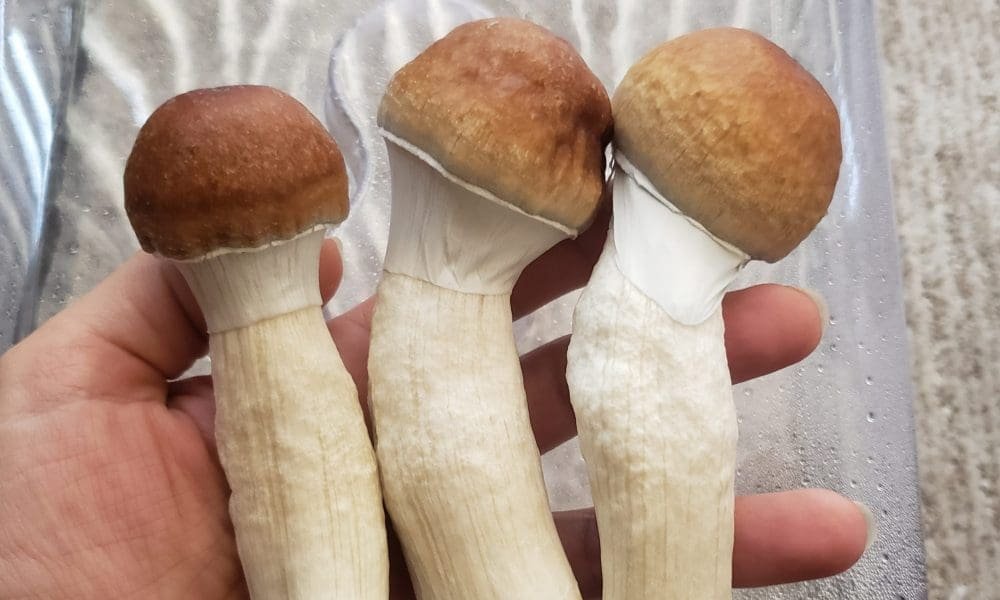Proponents of a plan in Alaska to legalize certain psychedelics—including psilocybin, mescaline and DMT—have submitted an initial round of voter signatures as part of the campaign’s effort to put the proposed measure on 2026 state ballot.
Natural Medicine Alaska, the group behind a proposed ballot measure, posted on Facebook that 230 signatures of voters had been submitted to the state for verification.
Thank you so much to our amazing volunteers in Anchorage, Valley and Talkeetna! It said. We couldn’t do it without you!
If at least 100 signatures submitted are valid, the state Lieutenant Governor will certify that proposal. Nancy Dahlstrom(R) will then decide within 60 days if she certifies the proposal in order to collect more signatures to qualify the ballot for state.
A policy outline explains the proposal as “building off of” Colorado’s voter-approved 2022 Natural Medicine Health Act, under which facilitators recently administered the state’s first legal dose of psilocybin.
Alaskan legislation would allow adults over 21 to use DMT, psilocybin or psilocin for noncommercial purposes, cultivate them and share with others. This model is popular among proponents of psychedelic drug reform.
This measure allows individual practitioners to offer services instead of relying on a healing center. [natural medicine] The organizers policy statement says that they will increase accessibility by facilitating in-office and home facilitation in Alaska’s rural communities.
Growers must take reasonable measures to keep minors out. They will need a minimum of 12 feet squared and a place that is not visible to the public.
Adults would have to be able to transfer psychedelics without payment.
A civil penalty of up to 100 dollars could be levied if the substance is consumed in public.
On the commercial side, Alaska would license healing centers—where certified facilitators would supervise psychedelic administration—as well as testing labs, cultivation facilities, product manufacturers, handlers and other related businesses.
License applications would have to be submitted no later than 1 July 2028.
Alaska residents would be required to hold at least 50 percent of all ownership in the facilities.
The proposed initiative would protect traditional healers for the “ceremonial or spiritual use of plant medicine” by granting legal exemptions from state drug laws. According to the proposal, they do not have to be licensed by a state but “must hold certification or credentials as a tradition practitioner.”
Natural Medicine Control Board, an “agency of quasi-justice and regulation” within the Department of Commerce, Community and Economic Development, will oversee this system. Members would come from public safety and health as well as a person from rural areas, someone representing the natural-medicine industry, an Alaska Native Traditional Healer, someone who practices psychedelic therapy professionally, or someone from either the general public, or natural medicine sector.
An advisory committee of 15 people would provide recommendations for the program. This body will include mental health professionals, researchers or therapists in natural medicine, tribe representatives, physicians, veterans, first responders, and healthcare experts.
In terms of traditional use, it would create a Traditional Use Council that will develop the best practices for Indigenous psychedelic usage and harm reduction. It would involve a certification and credentialing system that is “You can learn more about it here You can also read about You can also consider The following are some examples of how to use lineage, apprenticeship, Community Recognition and cultural practice rather than formal training in clinical or academic settings”
Natural Medicine Alaska posted on its social media page that they are currently starting “a full-statewide campaign” to inform voters, create coalitions and gain the support necessary to pass their measure.
It’s seeking $49 donations from supporters—intended to recognize Alaska as the 49th U.S. state—to help fund the effort.
Alaska was always the Last Frontier. “With your help, we can transform Alaska into the Next Frontier of healing-centered policy reform for psychedelics,” says the message.
A video campaign from February stated that the campaign envisions a “future where natural remedies are an option for all those who seek healing and wellbeing, a futuristic future in which education about these medicines empowers Alaskan communities with legalized individual use of psilocybin, as well as other natural psychoactives.”
In a poll conducted last year, nearly half of Alaskan adults (49.4%) said they would vote for a measure that would remove the criminal penalty associated with substances like psilocybin mushroom.
That support rose markedly—to nearly two thirds (65 percent)—when participants were told that Alaska has high rates of mental illnesses that could potentially be treated with psychedelics.
Below you can read the entire ballot initiative language:
Photo courtesy of Wikimedia/Mädi.





